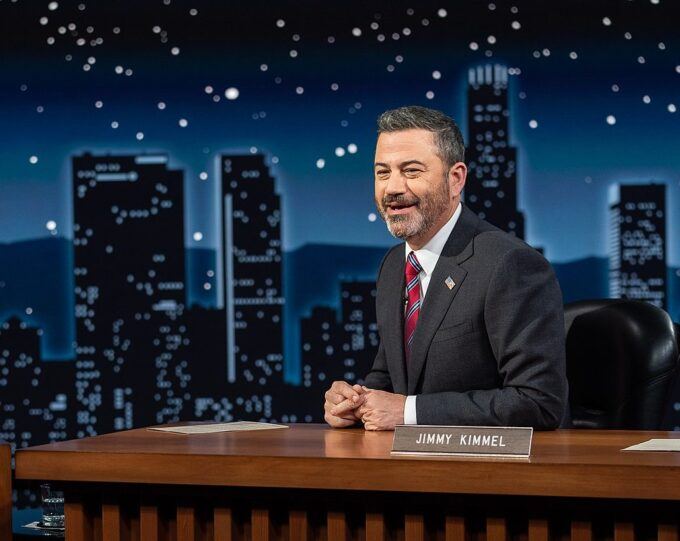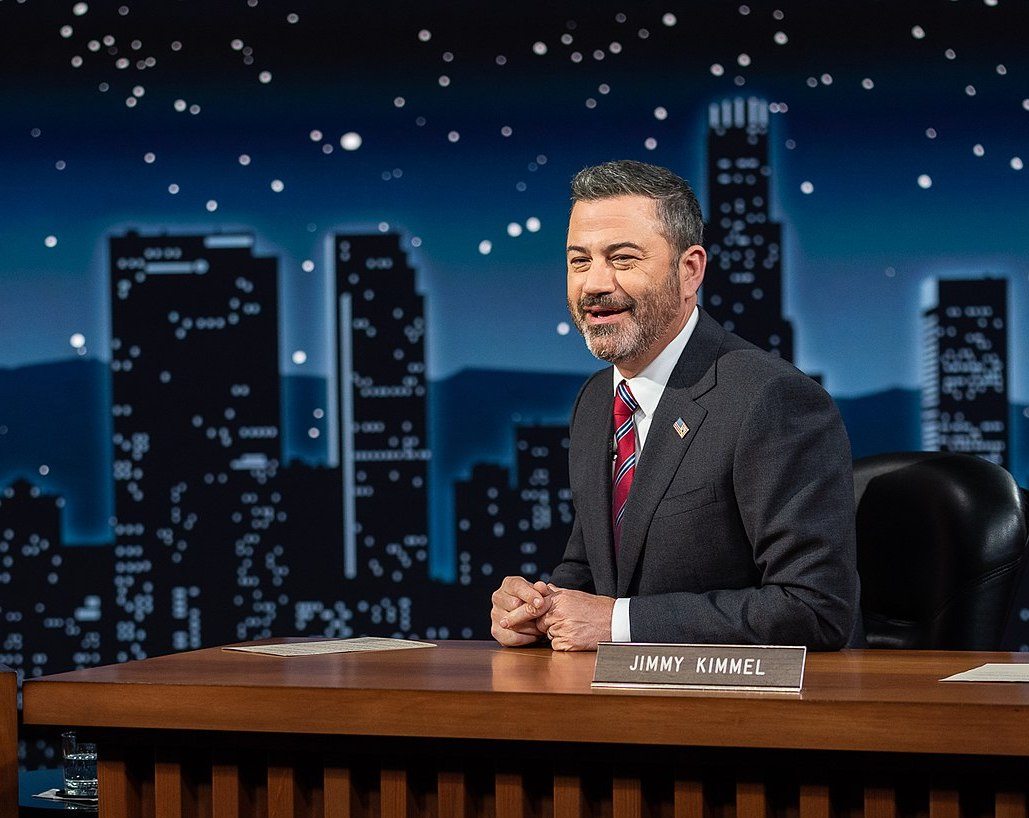


































































Photograph Source: Erin Scott – Public Domain
The Trump administration’s latest attack on the First Amendment has again raised questions about the meaning of the freedom of speech in the present-day United States. First, I happen to agree with Trump that Jimmy Kimmel is neither funny nor talented. A performer this bad could only have a show in a culture like ours. That said, this firing or dismissal—or whatever it is we’re watching right now—clearly came at the behest of the FCC chair Brendan Carr and is based purely on Kimmel’s Democratic Party politics and is therefore about as clear a violation of the First Amendment as you could have. It is not the kind of tricky hypothetical law professors might use to test their students on the requirements of the Constitution. It is not hard.
But I would submit that the law, even as found in the First Amendment, is the wrong object of focus and inquiry. The meaning of legal terms does not spring forth from the mind of god in some perfect form, but depends on us and what we think and believe. The meaning of something like the Constitution’s First Amendment is socially constructed through constant interpretation and contestation, always in flux, never a stable metaphysical given. The proper object of attention is our normative values and the ways they show up in our culture and way of life: are we committed to the freedom of thought and expression and do we show that we are? The Constitution and its Bill of Rights are perhaps symbols of our commitment to the freedom of speech, but they aren’t the commitment itself. When it comes to political values like the freedom of expression, there is either a felt and lived normative anchor or we won’t have that value as a reality in our society.
For as long as there has been a United States and a First Amendment, there have been widespread myths about the country’s normative commitment to free speech as a perceivable social reality. Throughout American history, citizens and others living peacefully in the U.S. have been punished, imprisoned, and even murdered by the U.S. government for no more than expressing their political thoughts and opinions. This week, Jimmy Kimmel joins a long and distinguished list that includes free speech heroes like Ezra Heywood and Eugene Debs.
Donald Trump is no different from past presidents in kind, even if he represents a new degree of lawlessness and authoritarianism. Many past presidents—indeed virtually all—have aggressively attacked the First Amendment-guaranteed freedom of speech and political expression, often during times of war or perceived crisis, when Americans felt less able to push back against new assumptions of arbitrary power. This is a longstanding and thoroughly bipartisan tradition in the United States, and media outlets and performers have always been censored by the federal government. Presidents throughout our history have deployed a broad range of tactics to suppress dissident speech and throttle the press in the name of national security and public order.
Presidents, like the rest of us, have their pet political issues and objects of annoyance, but they have all reflexively bristled at the thought of genuine freedom of speech for people who sharply criticize the policies of the United States. Our history is filled with stories of the Palmer Raids under Wilson, prosecutions under the Smith Act during the FDR and Truman regimes, the severe and violent FBI repression under J. Edgar Hoover, and the aggressive Obama-era prosecutions of whistleblowers. We have never cared about the freedom of speech in the way we have enjoyed pretending to. Well, the ruling class hasn’t anyway; the people have always fought for their right to express themselves freely and many have done so bravely in the face of sustained attacks from the state and capital. Hoover led the FBI for decades and pushed surveillance, harassment, infiltration, and violence against organizers and activists, most notoriously under the COINTELPRO program, which oversaw operations to systematically destroy the civil rights, Black Panther, and anti-war movements, among others.
Even media darling Barack Obama’s administration became infamously hostile to the First Amendment in its unprecedented use of the Espionage Act to prosecute whistleblowers (for example, Chelsea Manning, Edward Snowden, John Kiriakou and others). President Obama used highly aggressive campaigns against journalists, leading to a severe chilling of speech and a palpably hostile climate for critics of U.S. government policy, particularly its foreign policy and its unconstitutional domestic surveillance and police statism. Debs understood that it is only challenging and controversial speech that requires protection, and he argued that if this crucial freedom means anything, then it should hold in wartime no less than in peacetime. Debs understood our country’s myths and hypocrisies better than most then or now. He noted with irony that it “is extremely dangerous to exercise the constitutional right of free speech in a country fighting to make democracy safe for the world.”
Donald Trump has always been openly hostile to the idea of free speech and expression. He has questioned the recognized constitutional right to burn the flag; he has overseen a violent crackdown on peaceful protesters, including sending the U.S. military; he has deported lawful residents and citizens for their criticisms of the government’s role in the genocide still ongoing in the Gaza Strip; he has retaliated against law firms and other organizations for their political viewpoints; he has attempted to erase the story of American history and made government funds contingent on partisan politics; he has restricted press access to his White House based on political views; and the list goes on.
If Trump’s second term does not mark a rupture, then it can be regarded as an intensification of a longstanding policy and practice of U.S. government hostility toward free speech, targeting critics in times of perceived crisis. His regime’s attempts to silence dissent, manipulate and deeply alter historical narratives, and punish political opponents are part of a bipartisan legacy of repression. If we want freedom, we can’t leave it up to people like those who have occupied the White House.
The post Kimmel vs, the FCC appeared first on CounterPunch.org.
This post was originally published on CounterPunch.org.